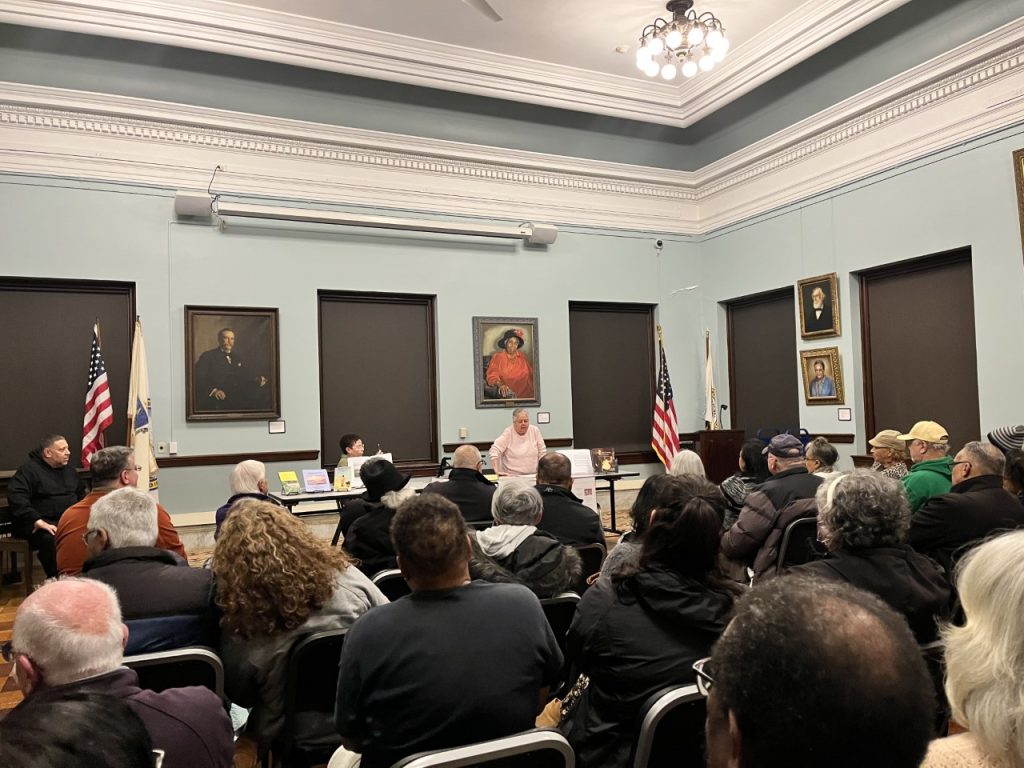
Dawn Blake Souza would like everyone who reads her latest book to see, through her work, that they too can record family stories for themselves and their extended family.
Souza’s book, “From the Islands They Came,” tells the stories of her own family, their Cape Verdean heritage, move to the U.S. and life here. It was written from a desire to share her mother’s stories, she said, but she never expected the enthusiastic reaction that she’s received.
“I really expected that this book would have a really small audience of my family members or friends,” said Souza. Instead, “something resonated with people from all walks of life and all different back-grounds and triggered exactly what I was hoping — that people would want to write down their own family stories.”
Souza’s books have been bought in New Zealand, Australia, Luxembourg, and the Cook Islands, to name a few. Much of the excitement has come through a Facebook group called Cape Verdean DNA which looks to “expand our understanding of our own Caboverdeanidade, to share our story with the world and to reaffirm and strengthen the Cape Verdean family and future generations,” according to its description.
People from all over the world who share Cape Verdean heritage follow it.
“What I found out was especially in the Pacific, there were descendants of Cape Verdean whalers from the 1850s and ‘60s who went there and stayed and married the indigenous people,” Souza said.
Although the appeal is broad, the book is personal, Souza said, written to record stories that her mother told her and to share them with her whole family.
The pandemic gave her the time to begin and, with the help of several family members, do the research necessary to back up the events told.
“It was very important to me to not just tell the stories, but to verify and document them,” Souza said about her process and the help she received.
One of the more tragic stories is of her mother’s brother Tony who died at age 21 after his Merchant Marine ship collided with a passenger ship in dense fog off the Massachusetts coast. Family members, including Souza’s mother, had lined the canal not long before the collision to watch the ship and Tony pass through.
“I recall standing on the banks of the canal and waiving to Tony as the ship glided past us. We were all blowing kisses to him. Little did we know that would be the last time we would ever set eyes on him,” Souza quotes her mother as saying.
“As I started writing, it became easier and easier,” she said. “I felt very satisfied afterwards. I felt like I was doing this for my mother. She would be so proud to have all those stories shared with other people.”
Souza hopes others feel that same satisfaction in recording their own family stories.
“The most important thing is that they don’t have to be a writer to do this,” she said. “You don’t have to write a book; you just have to write down your stories so that your children will have them.”
When she does book talks, Souza tries to offer tips to help others follow in her footsteps.
“My emphasis is on how to begin telling your own family stories,” she said. “I give them materials and pointers for how to get started. Some people have such wonderful family stories.”
Telling family stories was a healing esperience. One powerful example was the story of Souza’s brothers who entered a segregated military where one brother was assigned to the white barracks and the other to the black barracks.
It was healing to write that story and also had an effect on others, she said.
“My 98-year-old grumpy brother who wouldn’t talk for five minutes on the phone called me the next day. He talked to me for an hour telling me how much he appreciated me telling his story. He said, ‘I didn’t know how to tell people,’” she said.
“So the healing was not just for me. The healing in the story was for the whole family.”

Recent Comments